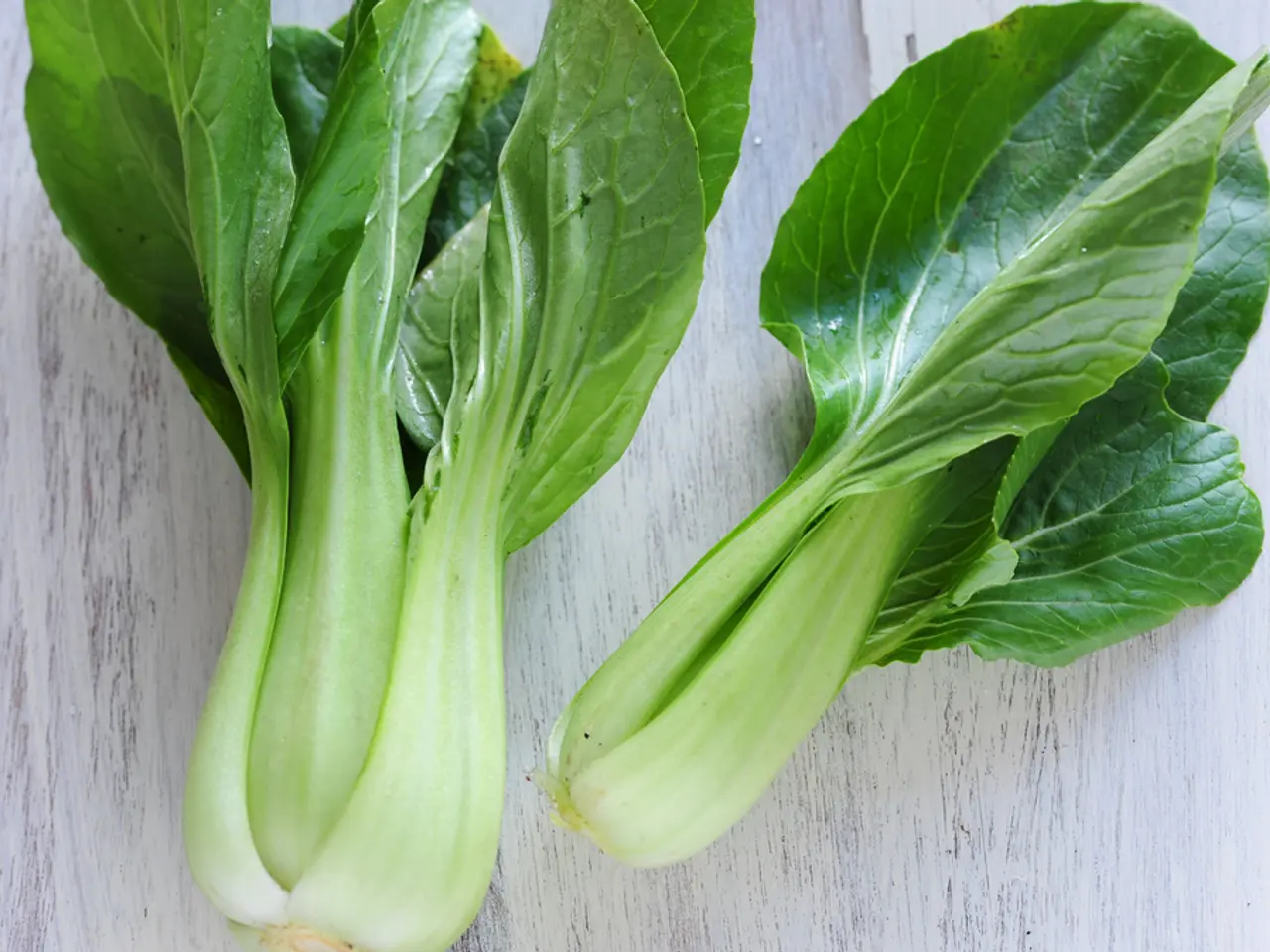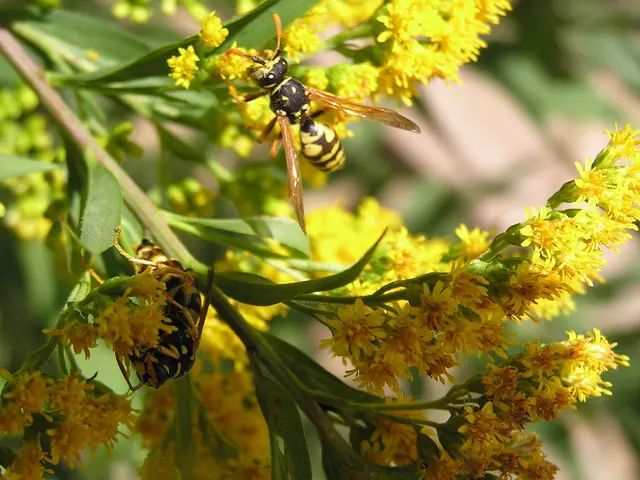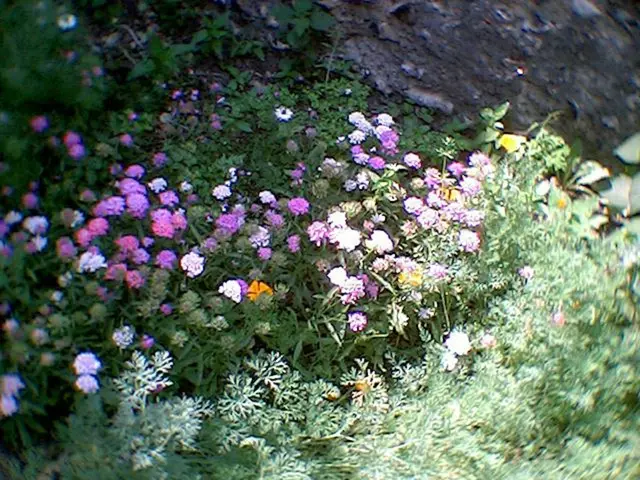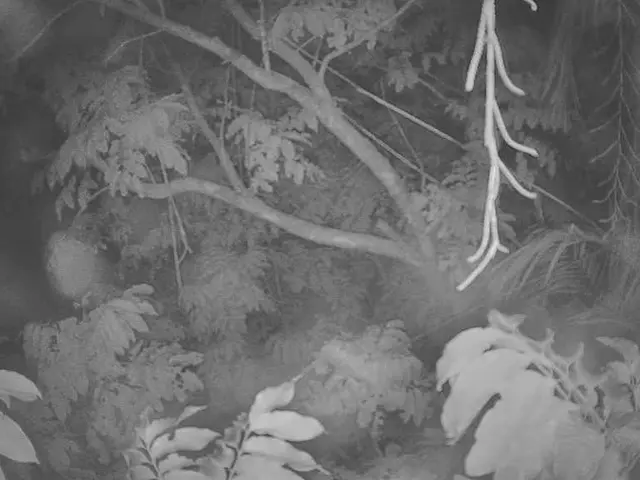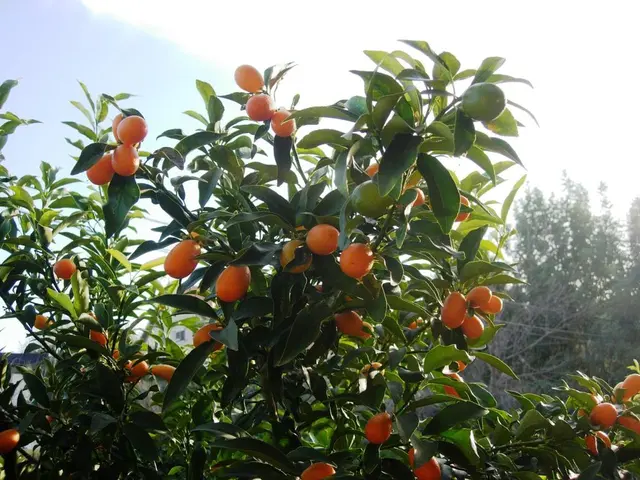Gardening with Dill: The Herb That Boosts Your Veggie Game
Optimal Accompaniments for Dill (Plus Species to Avoid in Proximity)
Dill, baby! This flavorful annual herb isn't just a tasty addition to dishes like salmon, pickles, and dilly beans, it's also a great asset to your vegetable garden. With its pungent aroma and attractive yellow flowers, it's time to bring dill into your garden and make your veggies shine!
There's more to dill than meets the eye. It spices up your meals and plays nice with other plants, providing pest control and inviting beneficial insects to the party. Here's a lowdown on some garden plants that love dill'scompany.
1. Asparagus
Asparagus and dill, a match made in heaven! Dill has shallow roots, making it perfect for growing next to the mighty asparagus. It acts as pest control, deterring spider mites and attracting ladybugs and lacewings, who munch on those teeny but troublesome aphids.
Keep in mind that asparagus takes up plenty of space with its feathery branches, so give them the room they need to party hardy.
2. Basil
Basil and dill, another outstanding pair. Both herbs appreciate moist, well-draining soil, cooler temperatures, and sunshine. Combine them in container gardens for a mini herb garden that looks as good as it tastes!
3. Cabbage and its Cousins
Cabbage, broccoli, cauliflower, kale, Brussels sprouts, and Swiss chard—these guys all benefit from being close with dill. This feisty herb repels major cabbage pests like the cabbage looper, cabbage moth, and cabbage worm. You can say goodbye to those gross caterpillars munching on your precious veggies.
4. Chervil
You got chervil? Chervil, or gourmet parsley, teams up with dill to offer even more benefits to your garden, like attracting parasitic wasps. It's tough to find in US grocery stores, so if you're a fan, start growing it!
5. Cucumbers
Who doesn't love cukes? Dill doesn't only taste great in refreshing cucumber salads - its beneficial insects help you score a bunch of free pest control! Dill attracts beneficial insects that feed on cucumber beetles, saving you from hordes of nasty striped pests.
6. Onions
Onions and dill, a loving relationship indeed. Dill helps guard against additional pests that might nibble on onions. In return, onions protect dill from pests like aphids. Dill also boosts the flavor of onions for a double win.
Here's where things get tricky. While many plants love the company of dill, there are a few that should keep their distance.
Worst Companions for Dill - 1. Carrots
Dill and carrots get into a tussle over space and pests. They belong to the same family, which means they can attract similar diseases and pests. Plant them in different areas to keep problems at bay and avoid hybrid plants with weird flavor combinations.
2. Peppers & Tomatoes
Dill might not be the bestie for peppers and tomatoes, both members of the nightshade family. Dill can hinder their growth, while these guys aren't big fans of its aroma.
Planning a market garden? Dill should definitely be part of the lineup. Its ability to deter pests, attract beneficial insects, and add flavor to veggies makes it a must-have. Even if you're short on space, it's easy to grow dill in a container!
Serena Manickam, a freelance editor and writer, and sustainable market gardener in rural Virginia shares her insights about growing a thriving vegetable garden. She holds a BA in environmental science and runs Fairydiddle Farm, where she produces no-spray produce and herbs for local farmers markets. You can check out her other work at her blog, or follow her on Instagram for even more gardening tips!
In the realm of container gardening, dill stands out as an essential herb that elevates your food-and-drink lifestyle. Not only does it tantalize taste buds in dishes like salmon, pickles, and dilly beans, but it also acts as a decorative element with its attractive yellow flowers.
Asparagus and dill, a garden duo, coexist harmoniously. Shallow-rooted dill deters spider mites and attracts ladybugs and lacewings while growing next to asparagus, keeping pesky aphids at bay. Basil and dill also pair up beautifully in container gardens, creating a mini home-and-garden paradise.
Cabbage family members, including cabbage, broccoli, cauliflower, kale, Brussels sprouts, and Swiss chard, thrive near dill, benefiting from its pest-repelling qualities. Moreover, chervil, or gourmet parsley, forms another beneficial relationship with dill, attracting parasitic wasps and adding exotic flavor to your recipes.
Cucumbers, cherished for their juicy crunch, flourish alongside dill due to the beneficial insects drawn to the dill plant. Onions also align well with dill, aiding in pest control and bolstering onion flavor. However, dill and carrots should maintain some distance to prevent disease spread and hybrid plants with strange flavors. Similarly, dill may hinder the growth of peppers and tomatoes due to their shared family roots and dissimilar aromas.
As you venture into the world of container gardening and lifestyles centered around gardening, consider incorporating dill into your garden plan. Embrace the beauty of perennials, vegetables, and herbs, and enjoy the harvest in your cooking endeavors.
